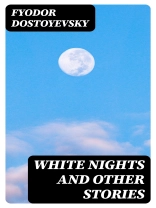In ’White Nights and Other Stories, ’ Fyodor Dostoyevsky explores the intricate recesses of the human soul, weaving together themes of love, isolation, and existential yearning. Through vivid characterization and a poignant narrative style, this collection delves into the lives of lost souls in the bustling city of St. Petersburg. The titular tale, ’White Nights, ’ presents a poignant account of an unnamed narrator’s brief connection with a woman named Nastenka, encapsulating the melancholic beauty of unattainable dreams amidst the backdrop of the enchanting white nights of summer. Dostoyevsky’s prose is imbued with rich psychological insight, making this work a seminal part of 19th-century Russian literature that resonates with human emotions and existential questions. Fyodor Dostoyevsky, a towering figure in world literature, faced a tumultuous life characterized by poverty, political imprisonment, and personal loss. These experiences deeply influenced his writing, imbuing it with a profound understanding of human suffering and the complexities of moral choice. ’White Nights and Other Stories’ reflects Dostoyevsky’s preoccupation with the inner life of individuals grappling with solitude and longing, establishing a significant milestone in his literary career that precedes his more extensive novels. For readers seeking a rich exploration of the human condition, this collection is essential. Dostoyevsky’s evocative storytelling invites us to engage with the characters’ inner struggles, encouraging reflection on our own emotional landscapes. ’White Nights and Other Stories’ not only captivates the reader’s imagination but also serves as a gateway into the deeper philosophical inquiries that characterize Dostoyevsky’s oeuvre.
Om författaren
Fyodor Dostoyevsky (1821-1881) stands as one of the most profound literary figures in Russian literature, whose works have had a deep impact on existentialist, psychological, and philosophical thought. Born in Moscow, Dostoyevsky was introduced to literature at an early age and later studied at the St. Petersburg Academy of Military Engineering. His literary career, however, began in the 1840s with the publication of his first novel, ’Poor Folk.’ Dostoyevsky’s acute understanding of the human psyche, coupled with his exploration of morality, free will, and the tumultuous sociopolitical landscape of 19th century Russia, marked his work with depth and intensity. ’White Nights and Other Stories’ is a collection that showcases his narrative mastery and his penchant for exploring the depths of human consciousness. Notably, this collection includes stories such as ’White Nights, ’ which display his signature psychological insight and his capacity to express the nuances of human longing and despair. Dostoyevsky’s literary style is marked by emotional intensity, complex characters, and philosophical undertones. His works often delve into the troubles of the human spirit, grappling with profound existential questions. Other monumental works include ’Crime and Punishment, ’ ’The Idiot, ’ ’The Brothers Karamazov, ’ and ’Notes from Underground.’ These works have enshrined Dostoyevsky as a monumental literary figure not only in Russian literature but also globally, influencing multitudes of writers and thinkers across varied disciplines.












